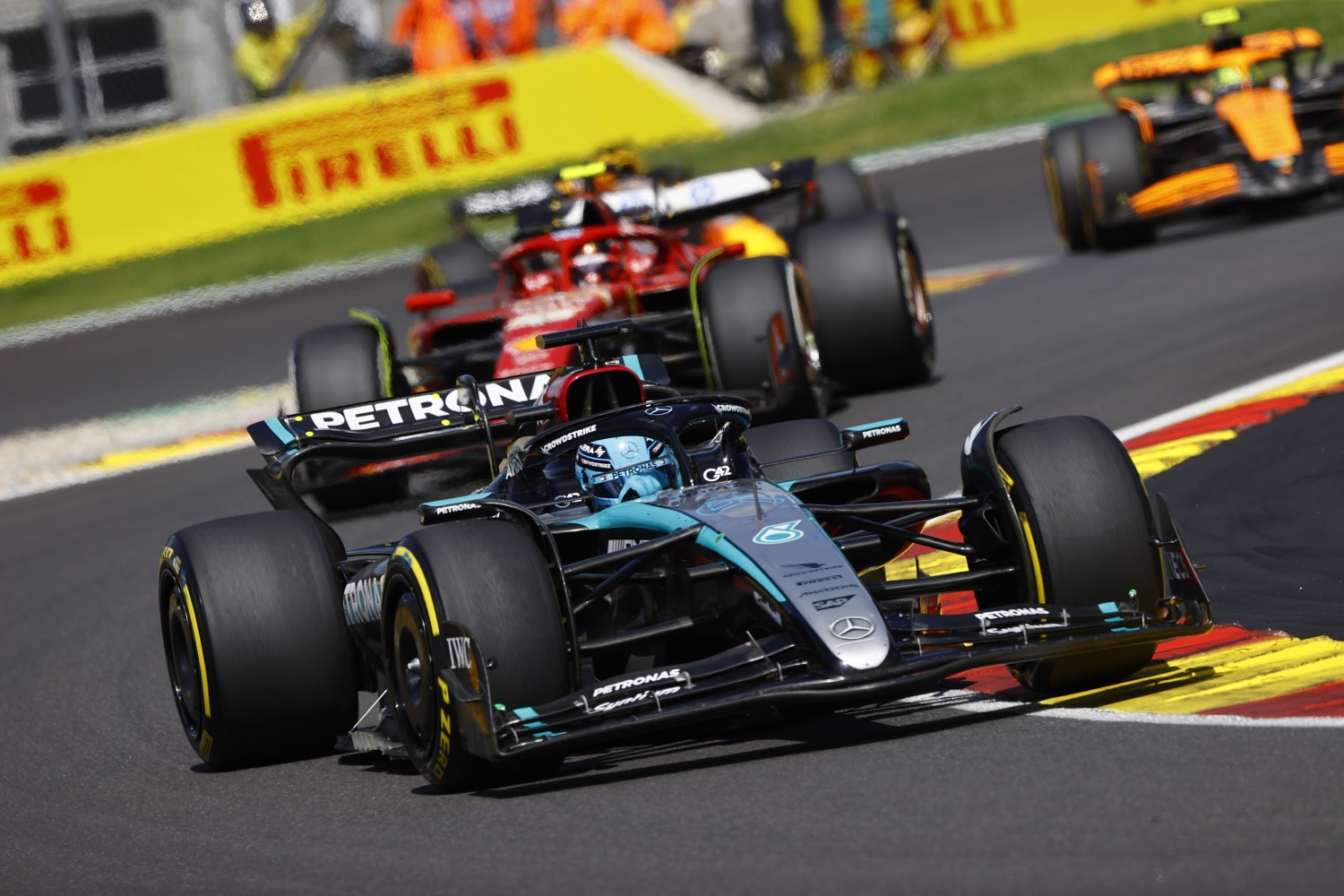Formula 1 News: First theories emerge about Russell’s shock DSQ
(GMM) The theories are emerging about how Mercedes could have given George Russell an illegally underweight car en route to victory in Belgium.
The Briton was “heartbroken” to be disqualified after the FIA weighed and then double-checked the 1.5 kilogram underweight car an another set of scales at Spa-Francorchamps.
“We clearly made a mistake and will learn from it,” said team boss Toto Wolff, who also apologized to Russell. “We now have to investigate to understand exactly what went wrong.”
Team engineering boss Andrew Shovlin’s early theory is that Mercedes miscalculated the weight loss from the unique winning one-stop strategy.
Auto Motor und Sport agrees: “No one had seen this strategy coming before the race. So it probably wasn’t included in the weight calculations.”
Russell was then not able to pick up discarded rubber after the checkered flag because the traditional ‘warm-down’ lap is missing in Belgium due to the Spa circuit’s unusually long length.
“We will not make excuses, though,” Shovlin said. “It’s clearly not good enough.”
Another theory, cited by Italy’s La Gazzetta dello Sport, is that Mercedes’ unexpected and sudden reversion to an older floor specification caused the team to miscalculate the weight effect on Russell’s car.
“It is true that this happened on both cars,” the newspaper explained, “but differences in setup between the two drivers may have required less ballast on Russell’s car.”
The silver lining for Mercedes is that Lewis Hamilton was promoted from P2 to P1, although the seven time world champion looked upset about not being offered the winning Russell-like one-stop strategy.
“Lewis said twice on the radio before the second pitstop that his tires were good,” Dutch commentator Olav Mol said on Ziggo Sport. “That was his way of saying he didn’t want to stop.
“That one-stop strategy saved 20 seconds,” he added.
Hamilton, who is moving to Ferrari for 2025, suggested on Viaplay that he was not very happy with the decision.
“You have to be able to trust the people you work with,” he said. “So I trusted the strategy team. I told them my tires were still good, but they brought me in anyway.

